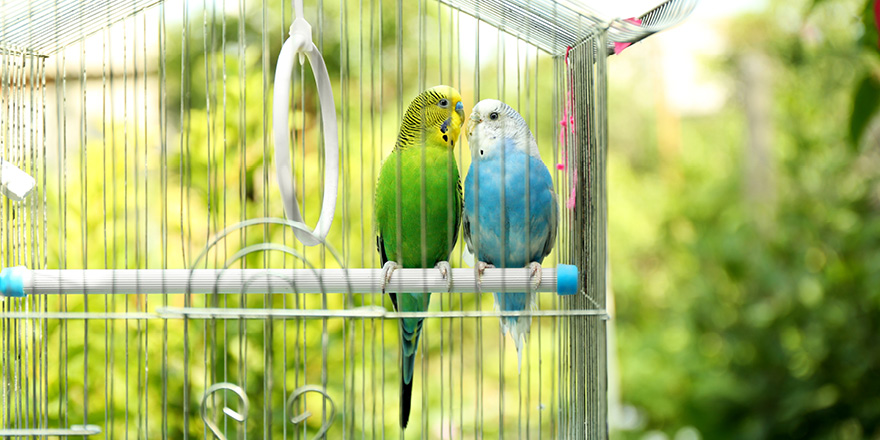Caring For Birds

If you are thinking of welcoming a new feathered friend into your family what should you think about to ensure that they are as happy and as healthy as they can be? Caring for birds requires some specialist equipment and knowledge but this should not put you off as birds can make great pets for all ages.
The cage home of any bird should be as large as you can manage – based on your budget and the size of the room you plan to keep your bird. When choosing a cage, ask for advice at a pet shop to ensure your cage is suitable for the bird in question, a cage should have bars which are thick enough to prevent your bird from bending them and also placing their head between the bars. Think about the different aspects of a cage, budgies for example should have horizontal bars so they can climb whilst finches like vertical ones as they prefer to hop or fly around their cage.
When it comes to making a cage a home, think of it like your home, fill it with accessories which are in some cases practical and in other cases things to make it homely. Extra perches, baths and food and water holders are essentials for a bird cage and be sure to keep the cage clean, a cage should be washed weekly using a mild disinfectant that is safe for birds and any bird cage furniture should be cleaned as and when it may become soiled. When it comes to the lining of the cage, you will need to place sand or wood-based litter to absorb any of your bird’s soil.
Constant access to fresh water is important to guarantee a bird’s health and wellbeing, therefore food and water bowls should be cleaned daily to avoid contamination.
A healthy diet for a bird can be quite broad but a good starting point is a high-quality seed, millet to mimic a bird’s natural desire to find food in the wild is always a very welcome addition to any cage as is cuttlebone or grit, cuttlebone provides your bird with calcium while grit aids your birds digestion as it can help to break down whole seeds which your feathered friend munches on each day.
Top Tip: Bird health is a specialist and difficult area of veterinary science as birds are good at hiding illness, as soon as you get your bird be sure to understand its habits when it comes to eating and drinking and where it looks happiest when in its cage – if you have any concerns about your bird, speak to your vet immediately.
By Jacob White






